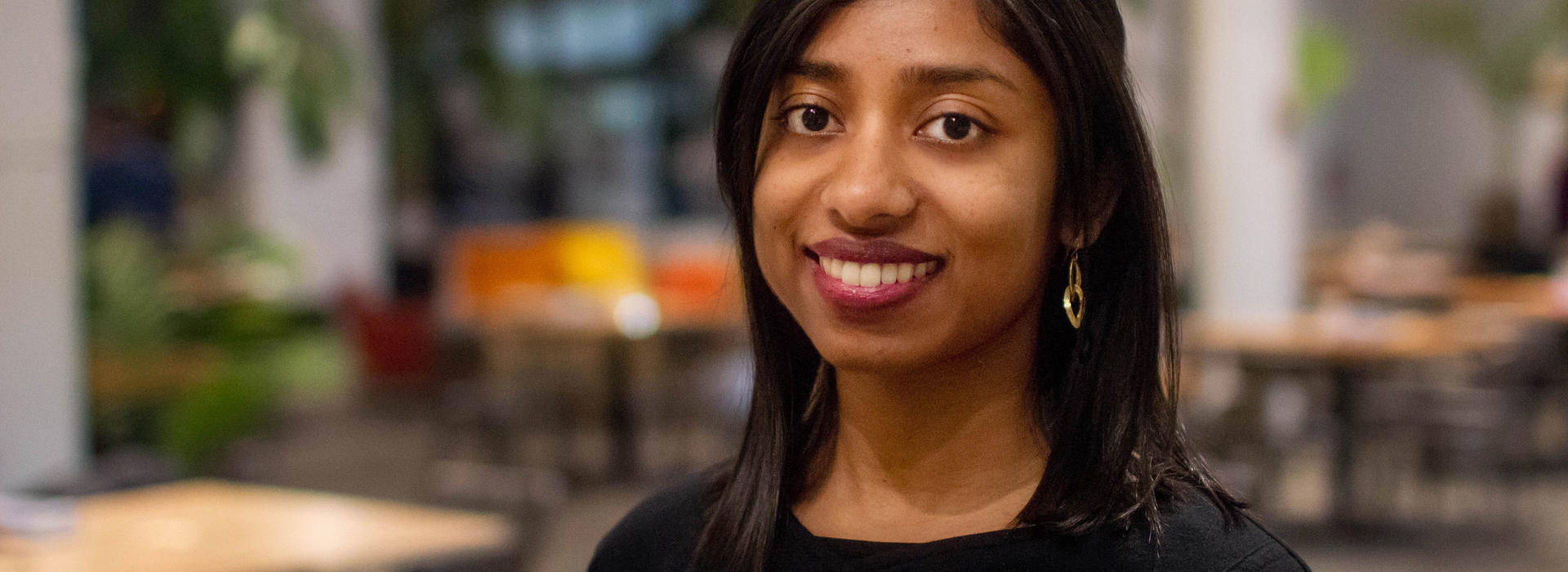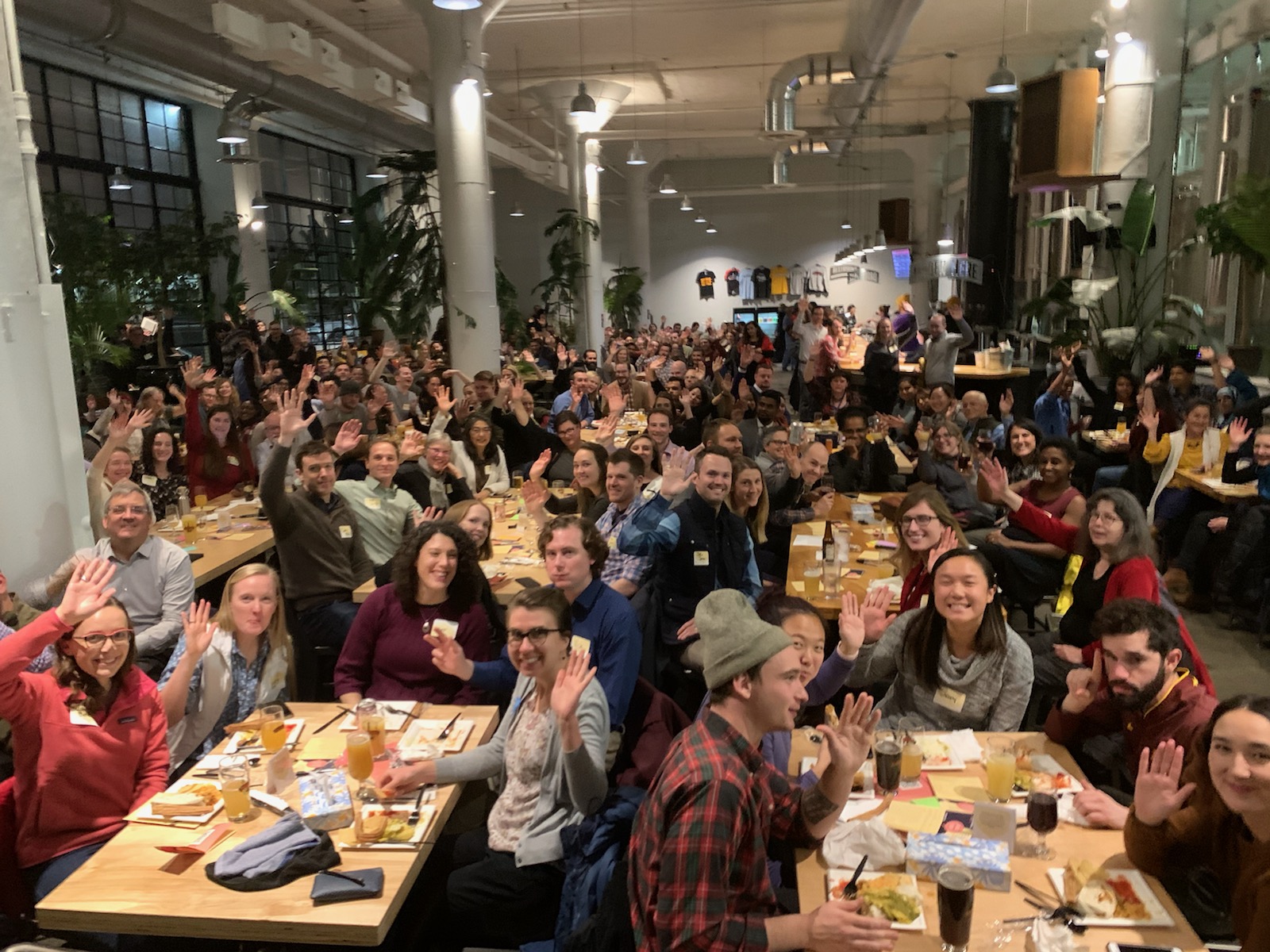
The Science of Storytelling: Medical School Trainees, Faculty Take Part in Annual ‘Story Slam’
“It’s been said that humans are the storytelling animal, yet many doctors spend much of their formative years focusing on the types of science that are emphasized in medical school and residency and are rarely given the time and space to truly reflect on and organize the dramatic stories that make up their lives,” said Ben Trappey, MD, who is an assistant professor in the Departments of Internal Medicine and Pediatrics at the University of Minnesota Medical School.
Dr. Trappey served on the planning committee of the second-annual “Metro-Wide Story Slam” hosted by the Metro Minnesota Council on Graduate Medical Education (MMCGME). The evening event at Blackstack Brewing opened a unique conversation among trainees and faculty about the highs and lows of medical practice and education.

Trisha Paul, MD, a pediatric resident at the Medical School, is one of 15 residents, fellows and faculty members, who shared her story this week to an audience of more than 350 people. She spoke about the parallels between the science of medicine and its effects on those for whom she cares.
“The further we advance in our training, the more sub-specialized we become in medicine. And yet, interestingly enough, so many of our experiences in training share common threads,” Dr. Paul said. “Residency can be isolating; the stories we tell illustrate the universality of this coming-of-age experience. The Story Slam offers us a rare opportunity in a safe, casual space to connect with our resident and fellow colleagues, to indulge in the full spectrum of emotions that arise when caring for patients and to embrace the comradeship of medical training.”
Dr. Paul, originally from Ann Arbor, Michigan, began her medical career in her home state. The opportunity to be a storyteller and help coordinate the event have helped her build familiar roots in her new home, the Twin Cities. Connections like these serve as the reason why Maren Olson, MD, MPH, who is an associate program director for the Medical School’s Pediatric Residency Program and the event committee’s chair, says this MMCGME event is important and has grown since last year.
“Hearing fellow colleagues’ stories make them feel like they are not alone, and that the very intense experiences they are having in training are similar to those that other people are having. When we share those stories, we build connections,” Dr. Olson said.
Yet, connections are just one benefit. Dr. Trappey says when doctors share their stories, their well-being improves as well—and not sharing could have a negative impact on their work and health.
“By ignoring these stories, we're denying the well-documented wellness benefits associated with sharing one's stories, including the promotion of empathy, decreased burnout, increased workplace satisfaction, as well as actual health and immune-modulating benefits associated with organizing one's story in order to tell it to others,” he said.
Dr. Olson said she and Dr. Trappey are leading a team that is studying the use of storytelling in graduate medical education, evaluating the Story Slam’s impact through real-time reflections, follow-up surveys and interviews.
For more photos from the event, please visit the MMCGME website.